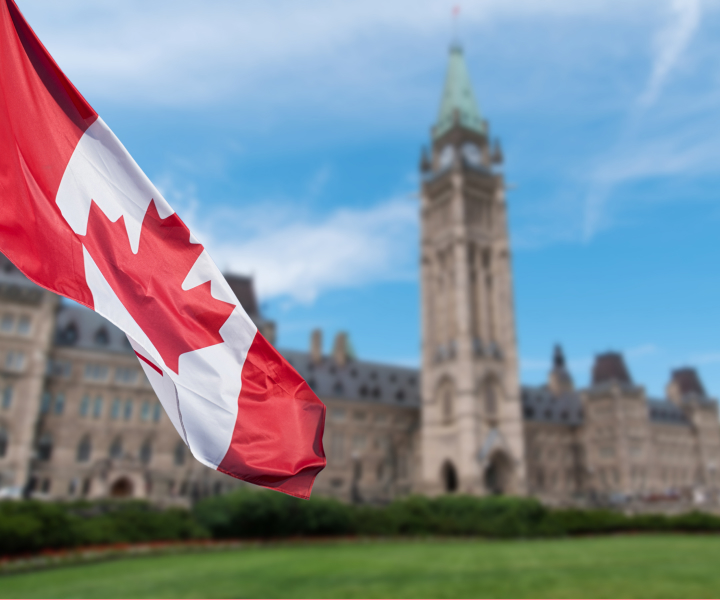Federal Election 2025: Here’s Where the Parties Stand on Taxes
TurboTax Canada
April 17, 2025 | 4 Min Read
Updated for tax year 2024

As Canada heads toward its 2025 federal election, affordability is proving to be one of the most critical issues for voters. Taxes, and how much we pay for our purchases and how much of our income is deducted, plays a big role in our cost of living.
Each political party is proposing various approaches to taxes in their official platforms. Tax policy directly impacts the lives of Canadians, influencing everything from personal income to business success and both funding and accessing government services. Here is how the major political parties are tackling taxes (in alphabetical order). While there are approximately 20 political parties in Canada, these are parties that are currently represented in the House of Commons.
Key Takeaways
- The Bank of Canada uses interest rates to manage inflation and keep the economy on a steady footing.
- Changes in interest rates can significantly affect your taxable income, particularly through savings accounts, investments, and potential mortgage interest deductions for rental properties.
- Understanding the relationship between interest rates and tax obligations, including Canada Revenue Agency (CRA) debt charges as well as refunds, are crucial for effective financial planning.
Bloc Québécois
The Bloc Québécois, a party devoted to advancing the interests of Quebec, advocates for tax policies that reflect the unique needs and priorities of that province. They run candidates throughout Quebec.
The party proposes tax breaks for seniors who choose to remain in the workforce rather than retiring. The Bloc would call for the GST credit, a tax-free benefit, to be doubled in any quarter when the inflation rate exceeds the Bank of Canada's target inflation rate (between one and three per cent) and pay it out monthly instead of quarterly. They would push to cut the GST on all second-hand goods and administer a single tax report for residents of Quebec. Currently Quebec residents file both a provincial and federal tax return.
Read the full Bloc Québécois platform (only available in French) here.
Conservative Party of Canada
The Conservative Party is putting forward a tax-reduction platform. One of the Conservatives' focus for the 2025 election is lowering taxes for individuals and businesses.
The Conservatives are vowing to cut income tax by 15%, and they would cut the tax rate on the lowest income tax bracket from 15% to 12.75%. Currently Canadians in the lowest tax bracket pay 15% income tax on the portion of taxable income that is $57,375 or less.
On top of income taxes, the Conservatives' plan includes eliminating the GST from the purchase of new homes that cost under $1.3 million and increasing the annual TFSA contribution limit by $5,000 a year, provided the money is invested in Canadian companies. They would also keep the reversal of the Consumer and Industrial Carbon Taxes. They promise to allow working seniors with an annual income under $42,000 to earn as much as $34,000 without paying any taxes, and allow senior to continue saving in their RRSP for an extra 2 years. The party would also allow travelling trades workers to write off the full cost of food, transportation and accommodation, and they pledged to end write-offs for executive travel via luxury corporate jets, limiting write-offs to the equivalent of a commercial flight.
The Conservatives proposed to eliminate the capital gains tax for any business or person that reinvests the proceeds in Canada. They also say they will reduce corporate tax rates, aiming to create a more competitive environment for Canadian businesses, and simplify the tax system to make it easier for Canadians to comply.
Go to the Conservative Party platform here.
Green Party of Canada
The Green Party recently announced its commitment to raise the federal Basic Personal Amount from $15,705 to $40,000.
The Green Party's Fair Taxation plan on its website vows a tax on the wealthy (although they don't define “wealthy”) to give relief to working families. The party said it would focus on taxing big tech companies and big banks.
Read the Green Party's plan here.
Liberal Party of Canada
The Liberals kicked off the party's 2025 election campaign by announcing a middle-class tax cut.
The Liberal plan will see the tax rate on the lowest tax bracket cut by one percentage point. Currently Canadians in the lowest tax bracket pay 15 per cent income tax on the portion of taxable income that is $57,375 or less. Their proposal would see that rate be decreased to 14 per cent
The party said this move would build on steps they have already recently announced, such as cancelling the consumer carbon tax and the proposed capital gains tax increase. They also promise to eliminate the GST on all homes up to $1 million for first-time home buyers and make it easier for workers to access Employment Insurance.
Go to the Liberal Party platform here.
New Democratic Party (NDP)
The NDP plan is focused on cutting sales taxes on essential items such as groceries to combat the high cost of living.
The party said in its tax plan that it will reduce GST on grocery store items, diapers, children's car seats, clothing for children, all telecom, internet and mobile phone charges, as well as on home heating.
The NDP has promised to increase the basic personal amount for anyone earning less than $177,882 to $19,500. At the same time, the NDP would decrease the basic personal amount for higher income brackets to $13,500 and eliminate it completely for individuals making more than $235,632.
They would keep the capital gains tax increase that was proposed by the Liberals in the 2024 budget but then recently cancelled.
To pay for these tax cuts, the NDP says it will introduce an excess profit tax on large corporations. The party clarified that its excess profit tax would only apply to very large corporations, but hasn't clarified how much profit would trigger the tax. They say this would bring in $14 billion in additional annual revenue.
Read NDP's Workers For Canada plan here.
Conclusion
While cutting taxes is a common promise in this federal election, the execution and who will benefit remains unique to each party. When lining up at the ballot box, you may wish to consider how these changes will impact you and your family, but also how they may impact the economy broadly. And since taxes fund important services like healthcare and our schools, it may be important to consider how these parties would make up the difference to meet those financial obligations if Canadians are paying less tax.
April 28 is election day in Canada, and April 30 is the deadline for your 2024 tax return. Your vote, and your taxes matter.
Related articles

© 1997-2024 Intuit, Inc. All rights reserved. Intuit, QuickBooks, QB, TurboTax, Profile, and Mint are registered trademarks of Intuit Inc. Terms and conditions, features, support, pricing, and service options subject to change without notice.
Copyright © Intuit Canada ULC, 2024. All rights reserved.
The views expressed on this site are intended to provide generalized financial information designed to educate a broad segment of the public; it does not give personalized tax, investment, legal, or other business and professional advice. Before taking any action, you should always seek the assistance of a professional who knows your particular situation for advice on taxes, your investments, the law, or any other business and professional matters that affect you and/or your business.









